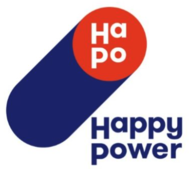



The “Happy Power” (HAPO) app focuses on boosting users’ emotional well-being and productivity by offering exercises and tools designed to improve personal growth. It aims to enhance users’ energy levels and overall mood, contributing to a higher quality of life and greater motivation. To participate and learn more, visit their official website, following the previous steps.
BRIEF DESCRIPTION
Positive Psychology is a new approach to modern psychology that focuses on studying, analysing and promoting greater well-being of the person through developing their full potential.
The project focuses on analysing four interrelated areas:
- Positive Subjective Experiences (happiness, fulfilment and flow).
- Positive Individual Traits (character strengths, talents, interests and values).
- Positive Interpersonal Relationships (friendship, partner and companionship).
- Positive Institutions (families, universities, businesses, communities).
It should be mentioned that positive psychology has been criticised by some authors for its continued approach on being positive, happy and cheerful (Coyne & Tennen, 2009). Happiness is only one of the topics of interest of positive psychology and professionals in this field do not deny the problems that people experience. They do not ignore the difficulties, tensions and adversities in their attempts to seek well-being (Park & Peterson, 2003) but they are not overwhelmed by them. Martin Seligman, the main referent of positive psychology, urged psychologists and educators to focus on the scientific study of well-being, optimism and the “flourishing” of the person (Simmons, 2013).
Indeed, positive psychology practitioners concentrate on individuals and organisations that generate gratitude and develop strengths to help create a more rewarding life (Peterson. 2013). Multiple research studies highlight the impact of positive psychology on successful higher education if strengths-based education is promoted since it boosts student’s growth by helping them thrive, build resilience, and it empowers them for greater success in their personal and professional lives. Likewise, educational practice that is aimed at helping students to identify and recognise their positive aspects and strengths has a positive impact on society in general, since people can lead more committed and meaningful lives that prepare them for civic engagement and productive work (Schreiner, 2015).
More particularly, research studies have delved into three main areas: the role of positive emotions in academic success; their impact on resilience and personal well-being and their influence on community happiness. All in all, the HaPo project can thus be paramount to shaping future professionals that are ready to face both global and local challenges and manage them in an optimal way. This attitude may not come naturally, and therefore this project is important to raise awareness on resilience, personal well-being and life satisfaction. These values not only contribute to better employees that have more chances of a fast incorporation into the labour market, but it may also positively impact on the community.


